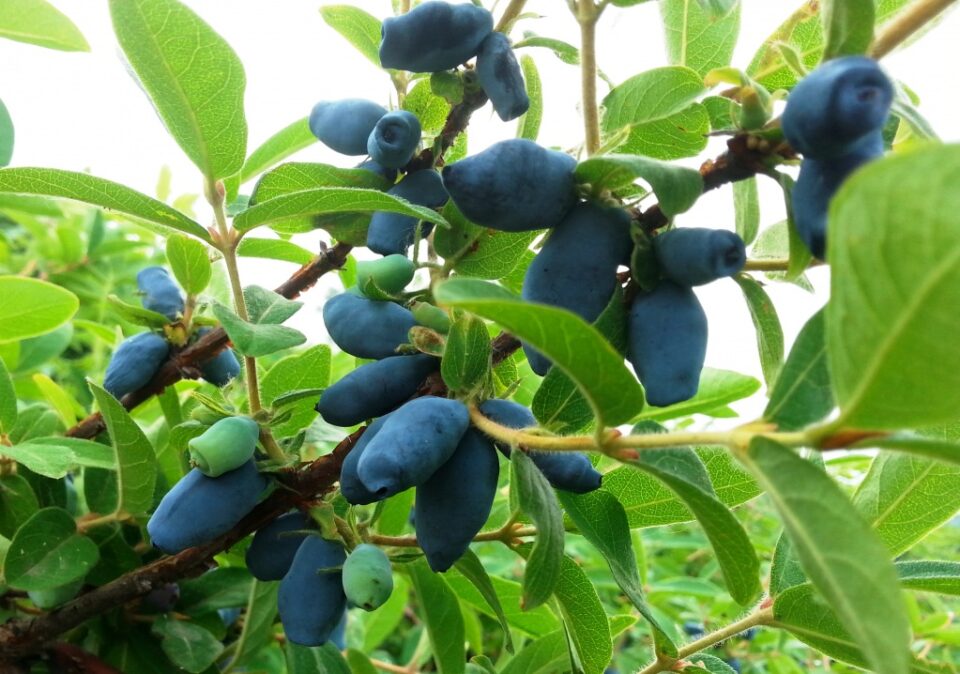Scientists of the Sverdlovsk Horticultural Breeding Station registered a new winter-resistant haskap variety Polyanka Kotova in the State Register of Protected Selected Achievements.
According to the Ministry of Agriculture of the Russian Federation, this is the first variety of haskap bred in the Middle Urals. It has the name of one of the authors of the variety, an outstanding breeder Leonid Kotov.
The new variety is characterized by high frost resistance, good yield (more than 3 kg of berries from a bush) and an original dessert taste. Thus, the berries are recommended to be consumed fresh, but they are also perfect for processing, such as making jam from mashed berries.
“Kotov received the new variety from reseeding the seeds of Kamchatka haskap back in 1985. Finally, the outstanding seedling was transferred to the Sverdlovsk Horticultural Breeding Station to be studied in a common agro background with other introduced varieties. According to the study results in 2011, Polyanka Kotova variety was transferred for state variety testing.
Breeding and registering a new sort of berry culture is a long and thorough work. However, today we have a variety obtained in our soil and climatic zone, suitable for cultivation in the Sverdlovsk, Kirov, Nizhny Novgorod regions, Perm Territory, and the Republic of Mari El (included in the State Register of Breeding Achievements in the Volga-Vyatka region)”, said Nadezhda Yevtushenko, a senior researcher at the Sverdlovsk Horticultural Breeding Station, Candidate of Agricultural Sciences, co-author of the Polyanka Kotova haskap variety.
Polyanka Kotova has a vigorous, well-leafy bush, elongated-oval or slightly pear-shaped fruits with delicate pulp, and an excellent sour-sweet taste. Besides, with proper watering, berries reach 1 gram or more. The new variety is of early-medium ripening in the first or second decade of June. Besides, it is resistant to pests and diseases, and it is not affected by apical aphids, ticks, spots.
The variety testing by the state commission lasted nine years. Experts checked the plant for all the declared characteristics: ripening, yield, resistance to diseases, size and taste of the fruit, and many others.
The use of the site materials is free if there is a direct and open for search engines hyperlink to a specific publication of the East-Fruit.com website.




